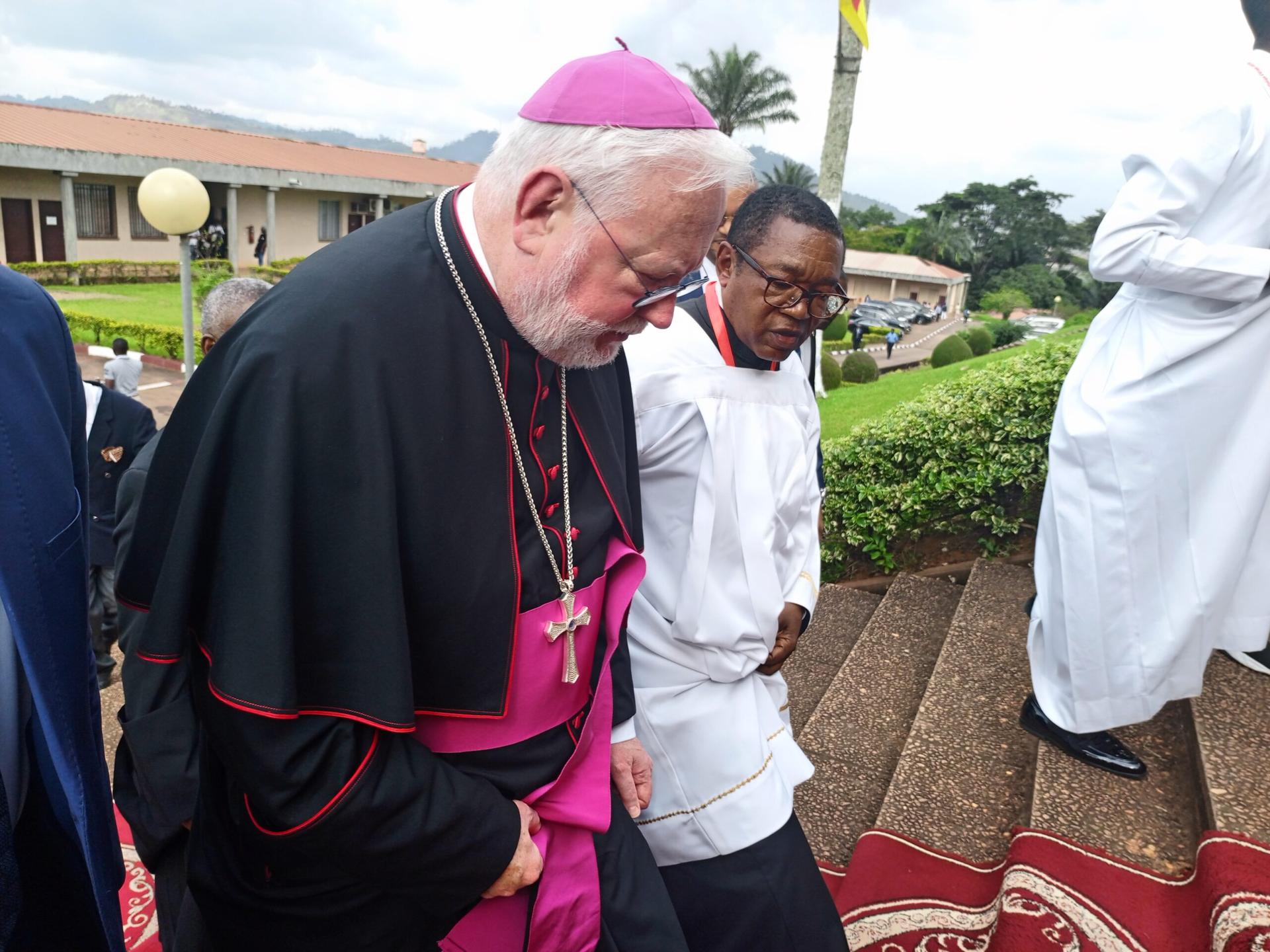YAOUNDÉ, Cameroon – Speaking in Cameroon, Vatican official Archbishop Paul Richard Gallagher said the framework agreements the Holy See signs with states are intended to guarantee freedom of worship and the growth of local churches.
The Vatican Secretary in charge of relations with governments and international organizations was speaking at the Catholic University of Central Africa as Cameroon and the Vatican celebrated ten years of the Framework Agreement signed between the central African country and the Vatican on July 13, 2014.
The agreement formalizes the relationship between the Republic of Cameroon and the Vatican, solidifying the legal status of the Catholic Church in Cameroon. It underscores the importance of religious freedom, allowing the Church to operate without interference. Additionally, the agreement fosters collaboration between the Church and the state in areas such as education, healthcare, and social services, while emphasizing respect for both individual and collective human rights, aligned with the Church’s spiritual, moral, and humanitarian principles.
Gallagher said that while the agreement shows “the attachment of both parties to religious freedom as an essential framework of the action of the Church in Cameroon,” it also demonstrates that the state recognizes “the eminent contribution of the Church to the human, social, cultural, spiritual and even economic development [ of Cameroon] while guaranteeing it to peacefully pursue its mission.”
Above all else, the agreement, he said, is “essential to allow the ecclesial institutions to develop more easily and to pursue the mission of the Church.”
He harped on the issue of religious freedom, arguing that it is foundational to all other freedoms.
“The Church solemnly declared itself in favor of religious freedom for all, without distinction of race or religion,” the Vatican diplomat said.
He said the Second Vatican Council pointedly “declares that the human person has the right to religious freedom.”
“This freedom consists in the fact that all men are to be free from coercion on the part of individuals, of social groups, and of any human power, so that in religious matters, no one is forced to act against his conscience or prevented from acting within just limits according to his conscience, in private or in public, alone or in association with others,” Gallagher said.
“By signing agreements with states, the Church is no longer asking for privileges as was sometimes the case in the past years, but is simply claiming the benefit of religious freedom for the Catholic Church and its people,” he said.
Gallagher noted that the Church no longer seeks privileges from states, but rather the benefit of religious freedom for the Catholic Church and its followers. He recalled two previous agreements related to higher education in Cameroon: One signed on July 5, 1989, establishing the Catholic University of Central Africa, and another signed in 1995, recognizing diplomas from the university both locally and globally.
Reflecting on Vatican diplomacy, Gallagher highlighted the Holy See’s long-standing relations with Africa, noting that the first agreements with African nations were with Tunisia and the Belgian Congo.
“This was the beginning of a long and rich cooperation in the history of agreements between the Holy See and African States,” the archbishop said.
“In modern times, this process has accelerated considerably. The diplomacy of the Holy See, considering such agreements as one of the most important means, can not only strengthen its relations with the States, but also and above all can more effectively provide the faithful with the pastoral service of the Supreme Pontiff,” he explained.
Archbishop Jean Mbarga of the Yaoundé archdiocese said that the Catholic University of Central Africa represented a visible sign of the fruits of Vatican diplomacy.
“The Catholic University of Central Africa is a pure product of the diplomacy of the Holy See in relation to the States,” Mbarga said.
Gallagher said despite its frailties, Vatican diplomacy is at the service of the Church and humanity. He called on all states to “rediscover a spirit of service with the intension of being a global solidarity that expresses itself concretely in helping those who suffer, for to serve means to care for those who are fragile in the society.”
He said the commitment to serve looks at the face of the suffering, whether from the effects of war, or the lack of respect for basic human rights.
“For this reason, service is never ideological, since it serves not ideals, but people,” Gallagher said.














